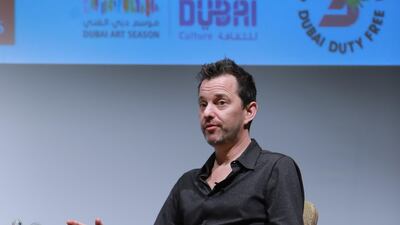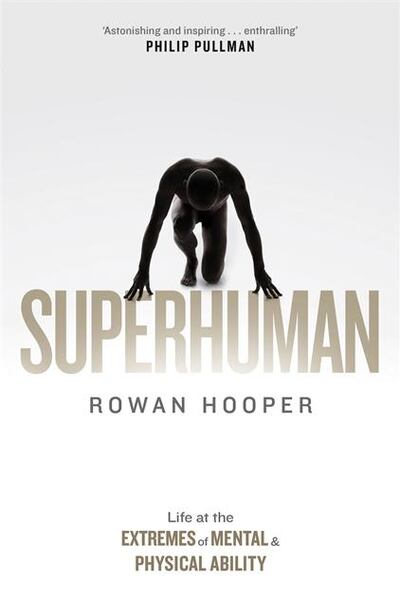As the old saying goes: “Practice makes perfect.” But according to evolutionary biologist Rowan Cooper, this may not be the case at all. It is, quite simply, a matter of genetics.
Cooper, author of Superhumans: Life at the Extremes of Mental and Physical Ability, has voiced reservations about the "10,000 Hour Rule", a theory popularised by the journalist Malcolm Gladwell, which states that anyone can become "world-class" in a specific task through dedication – or to be precise, 20 hours of practice a week for 10 years.
Speaking at the Emirates Festival of Literature, however, Cooper said: "You do need to have something innate if you're talking about being the best in the world."
Using the example of the world’s finest opera singers, Cooper explained: “If I ask them, ‘Where do you think your ability comes from?’ they say, ‘It is 99 per cent [down to] the work I’ve put in.’ They think it is all from nurture.
“But if you look at [the findings of] geneticists who have [studied] singers, it turns out that there’s a huge amount of genetics and nature involved […] Let’s say 50 per cent is genetic, is inherited. [You need to find] a balance between nature and nurture. It’s not one or the other, it’s always both things that work together.”
Cooper continued: “It would be lovely if we could all practise ourselves to expertise. I’m talking about the best in the world – you can do 10,000 hours of practice but unless you’ve got that other thing, that genetic thing, you’re not going to become the best in the world.
“Look at the current world top 10 in chess. If the [theory about practice] is correct, you’d expect the top player to have practised more than the others. But it turns out that he’s practised less than all the others, so there’s a natural ability that you can’t fake, you can’t get over it just by practice.”
If that all sounds a bit dispiriting, don’t worry: there might be some benefits to focusing on genetics, rather than lifestyle. Cooper believes that changing your environment – “living incredibly well” – might mean you live into your 80s. But, he explained, "the only way you’re going to get up to 100 is genetics. Many people try to eat healthily and do exercise and all of that but, really, there’s not much you can do.” Since there’s nothing we can do, let’s crack open the sweets and chocolate.
Experiments conducted with people who have lived to over 100 show that, like the rest of us, they do have “nasty genes” for diseases, such as cancer and Alzheimer’s.
What sets these people apart, Cooper said, is “not that they have pure genomes. It’s that they have other genes that protect against the effects of the bad ones they have got.
"So now the race is on to find out what they are – and then hopefully make [them] for the rest of us.”
For more information and to buy tickets, visit: www.emirateslitfest.com



